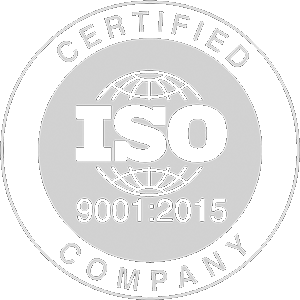In semiconductor manufacturing, precision, cleanliness, and chemical resistance are non-negotiable. PTFE (Polytetrafluoroethylene) meets these demands exceptionally, making it one of the most important materials in wafer fabrication and chip production. Its inert characteristics allow it to withstand extreme temperature fluctuations, aggressive etchants, and a wide range of chemicals without degradation.
PTFE’s non-stick surface and low outgassing properties help prevent contamination in cleanroom environments. It’s also thermally stable and maintains structural integrity under repeated heating and cooling cycles, which are common in processes like chemical vapor deposition (CVD), wet etching, and plasma processing.
From fluid handling systems to wafer transport and sealing components, PTFE is an irreplaceable solution in the semiconductor industry’s ongoing push for miniaturization and reliability.
- Ultra-High Purity: PTFE offers exceptional chemical inertness, minimizing contamination risks in wafer fabrication.
- Thermal Resistance: Maintains stability during extreme temperature cycling common in semiconductor processes.
- Dielectric Strength: Provides reliable electrical insulation critical for sensitive electronic components.
- Low Outgassing: Releases minimal volatile compounds, preserving cleanroom environments.
- Chemical Resistance: Resistant to aggressive etchants, solvents, and acids used in semiconductor processing.
- Chemical Handling and Storage: PTFE is used for chemical containers, tanks, and piping systems, ensuring the safe handling and storage of corrosive chemicals used in semiconductor manufacturing processes.
- Chemical Mechanical Planarization (CMP): PTFE is employed in CMP equipment, which is used for wafer polishing processes to maintain high purity and avoid contamination.
- Cleanroom Curtains and Liners: PTFE films can be used as cleanroom curtains or liners for equipment, as they are chemically inert and do not shed particles that could contaminate semiconductor wafers.
- Diaphragm Pumps: PTFE diaphragms are used in diaphragm pumps to transfer ultra-pure chemicals and gases without contamination.
- Electroplating Equipment: PTFE is employed in electroplating equipment used to apply thin metal layers on semiconductor wafers.
- Gas Distribution Systems: PTFE is used in the construction of gas distribution systems within semiconductor manufacturing facilities to maintain gas purity and avoid contamination.
- Ion Implantation Equipment: PTFE components are used in ion implantation equipment, where they can withstand high-energy ion beams and maintain chemical purity.
- Process Chamber Components: PTFE-coated components, such as chamber liners and fixtures, are used in semiconductor processing equipment to prevent contamination and chemical reactions.
- Seals and Gaskets: PTFE gaskets and seals are employed in semiconductor equipment to create hermetic and chemically resistant seals. They help prevent contamination and leakage in vacuum systems and gas delivery equipment.
- Semiconductor Etching: PTFE is used in the construction of components within plasma etching equipment, where it can withstand highly corrosive gases and high-temperature plasma environments.
- Temperature and Pressure Sensors: PTFE is used as an insulating and protective material for sensors that monitor temperature and pressure in semiconductor manufacturing processes.
- Tubing and Hoses: PTFE tubing and hoses are used for the transport of ultra-pure water, chemicals, and gases within semiconductor manufacturing facilities, ensuring minimal contamination and chemical purity.
- Valve Components: PTFE valve seats, diaphragms, and O-rings are used in semiconductor valves, ensuring precise control of gases and chemicals while maintaining high purity.
- Wafer Carriers: PTFE is used to make carriers that hold wafers during processing and transport, preventing damage and contamination.
- Wafer Handling Equipment: PTFE is used in equipment designed for the handling and processing of silicon wafers and other semiconductor materials to avoid contamination and damage to delicate surfaces.
- Enhanced Process Reliability: PTFE reduces contamination and equipment downtime, improving yields.
- Extended Equipment Lifespan: Resists chemical corrosion and thermal degradation to lower maintenance costs.
- Improved Safety: Non-toxic and inert, PTFE protects workers and sensitive products.
- Consistent Performance: Maintains stable mechanical and electrical properties under demanding conditions.
- Cleanroom Compatibility: Low particulate generation helps maintain strict cleanroom standards.
PTFE remains an indispensable material in the semiconductor sector, supporting advanced manufacturing technologies with unmatched purity, durability, and electrical performance.
